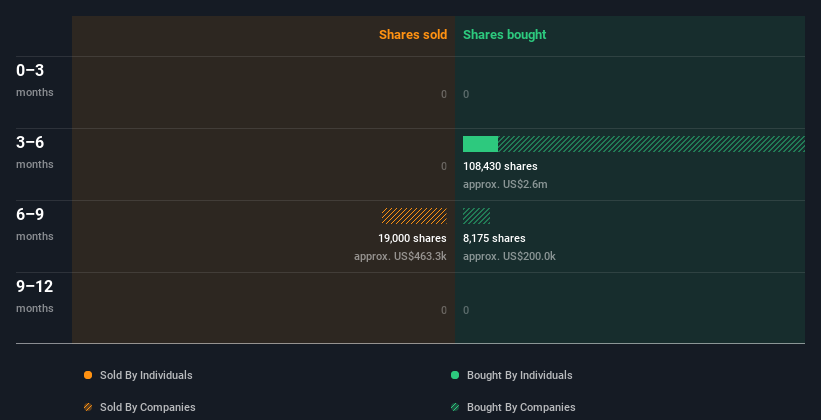Insiders who bought stock earlier this year lose -US$35k as The Eastern Company (NASDAQ:EML) drops to US$125m
Insiders who bought US$243k worth of The Eastern Company's (NASDAQ:EML) stock at an average buy price of US$23.36 over the last year may be disappointed by the recent 11% decrease in the stock. Insiders invest with the hopes of seeing their money grow in value over time. However, as a result of recent losses, their initial investment is now only worth US$208k, which is not what they expected.
Although we don't think shareholders should simply follow insider transactions, we do think it is perfectly logical to keep tabs on what insiders are doing.
See our latest analysis for Eastern
The Last 12 Months Of Insider Transactions At Eastern
In the last twelve months, the biggest single purchase by an insider was when Independent Director Fredrick DiSanto bought US$232k worth of shares at a price of US$23.22 per share. That means that an insider was happy to buy shares at above the current price of US$20.02. While their view may have changed since the purchase was made, this does at least suggest they have had confidence in the company's future. We always take careful note of the price insiders pay when purchasing shares. As a general rule, we feel more positive about a stock if insiders have bought shares at above current prices, because that suggests they viewed the stock as good value, even at a higher price.
While Eastern insiders bought shares during the last year, they didn't sell. You can see a visual depiction of insider transactions (by companies and individuals) over the last 12 months, below. By clicking on the graph below, you can see the precise details of each insider transaction!
Eastern is not the only stock that insiders are buying. For those who like to find winning investments this free list of growing companies with recent insider purchasing, could be just the ticket.
Insider Ownership of Eastern
Looking at the total insider shareholdings in a company can help to inform your view of whether they are well aligned with common shareholders. Usually, the higher the insider ownership, the more likely it is that insiders will be incentivised to build the company for the long term. Insiders own 5.4% of Eastern shares, worth about US$6.8m, according to our data. We do generally prefer see higher levels of insider ownership.
So What Do The Eastern Insider Transactions Indicate?
There haven't been any insider transactions in the last three months -- that doesn't mean much. On a brighter note, the transactions over the last year are encouraging. The transactions are fine but it'd be more encouraging if Eastern insiders bought more shares in the company. So these insider transactions can help us build a thesis about the stock, but it's also worthwhile knowing the risks facing this company. To that end, you should learn about the 3 warning signs we've spotted with Eastern (including 1 which can't be ignored).
But note: Eastern may not be the best stock to buy. So take a peek at this free list of interesting companies with high ROE and low debt.
For the purposes of this article, insiders are those individuals who report their transactions to the relevant regulatory body. We currently account for open market transactions and private dispositions, but not derivative transactions.
Have feedback on this article? Concerned about the content? Get in touch with us directly. Alternatively, email editorial-team (at) simplywallst.com.
This article by Simply Wall St is general in nature. We provide commentary based on historical data and analyst forecasts only using an unbiased methodology and our articles are not intended to be financial advice. It does not constitute a recommendation to buy or sell any stock, and does not take account of your objectives, or your financial situation. We aim to bring you long-term focused analysis driven by fundamental data. Note that our analysis may not factor in the latest price-sensitive company announcements or qualitative material. Simply Wall St has no position in any stocks mentioned.

 Yahoo Finance
Yahoo Finance 
